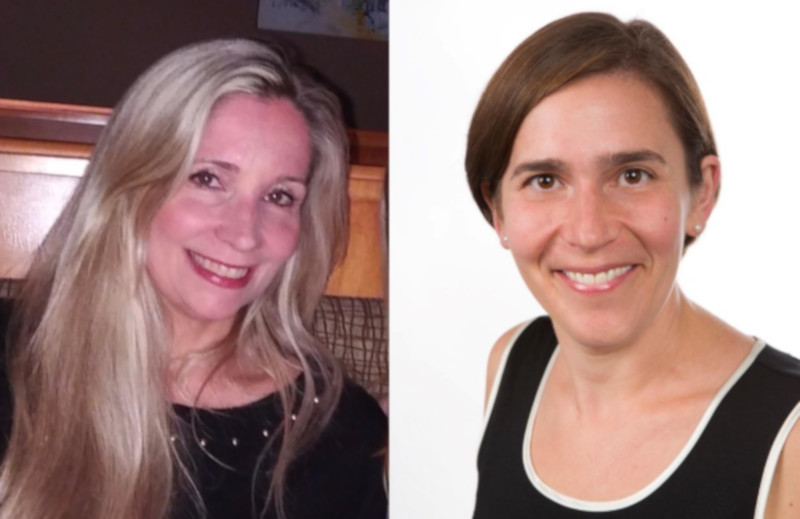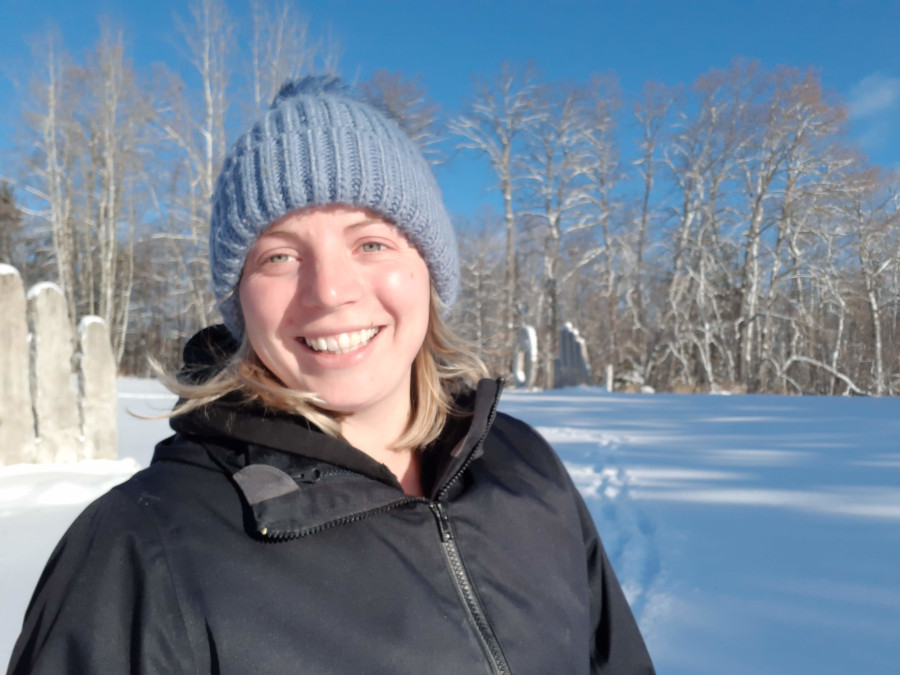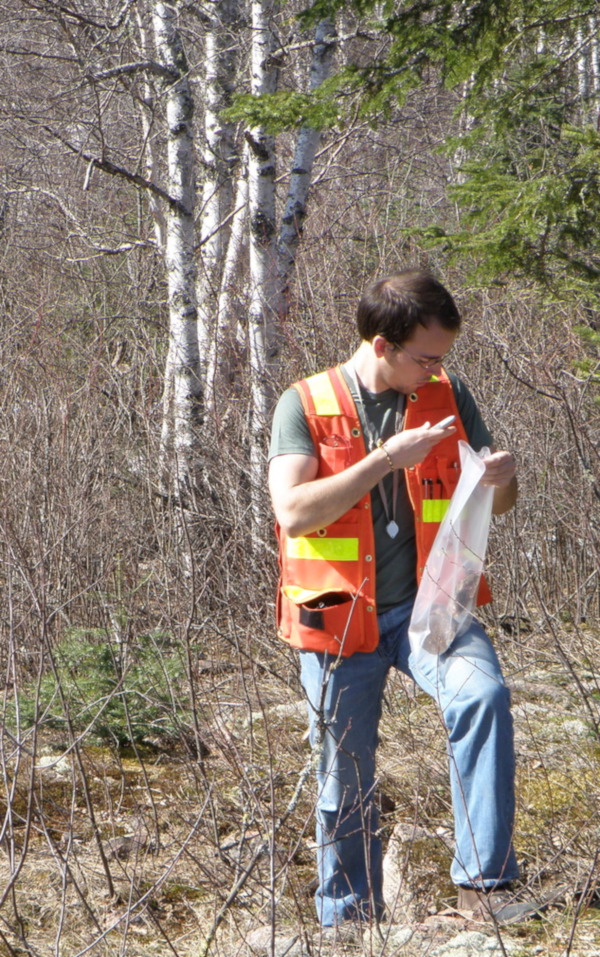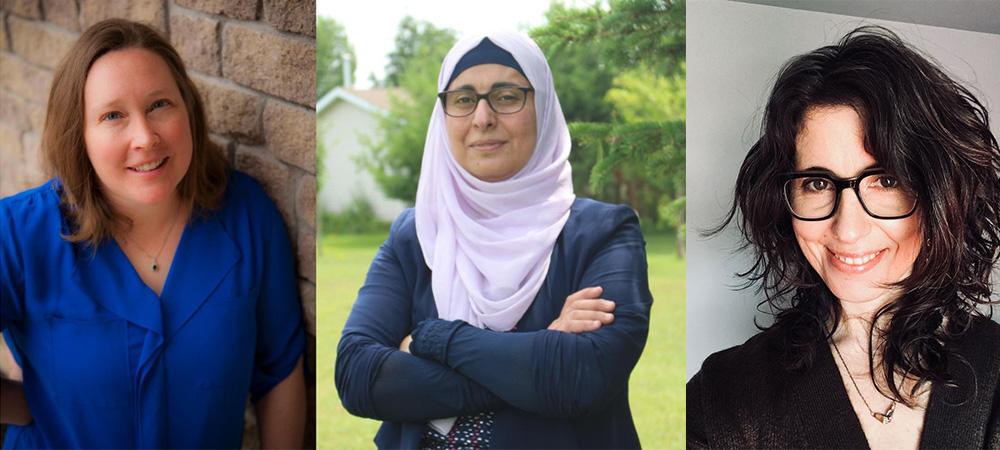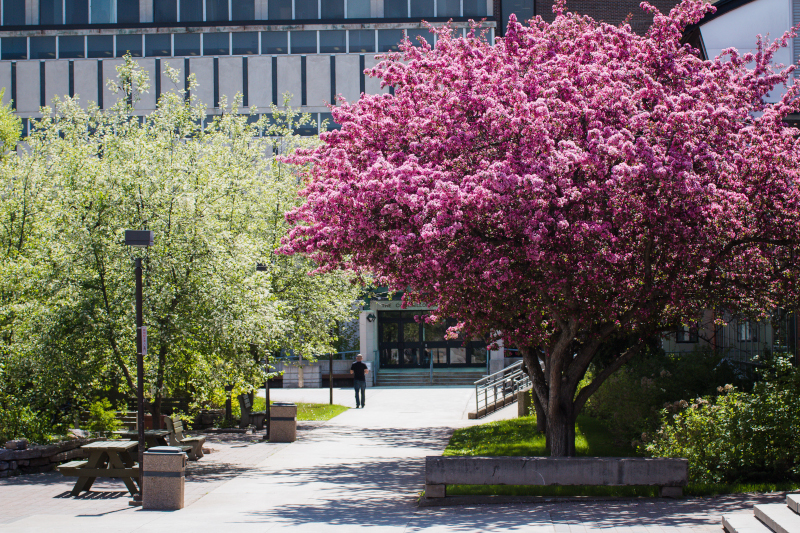June 17, 2020 – Thunder Bay, Ont.
Lakehead University professors are receiving more than $2.3 million from Canada’s Natural Sciences and Engineering Research Council (NSERC) for bold research exploring advancements in robotics, X-ray imaging technology, radio frequencies, and other important projects that will improve the lives of people around the world.
NSERC awarded Dr. Alla Reznik, a Lakehead Professor in Physics, Senior Scientist at the Thunder Bay Regional Health Research Institute, and Canada Research Chair in Physics of Molecular Imaging, with $205,000 to examine a new approach to X-ray imaging over five years.
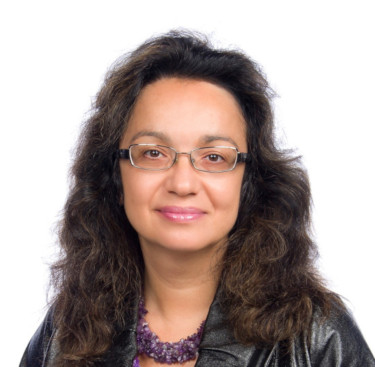
This new approach, using photoconductive material lead oxide, will improve the quality of health care through more effective and less invasive imaging connected with cardiac intervention and early breast cancer diagnosis.
“Minimally invasive cardiac intervention includes a whole spectrum of surgical procedures ranging from cardiac catheterization to aortic valve replacement,” Dr. Reznik said.
“Cardiac intervention procedures are long and are commonly carried out under X-ray guidance, which results in significant exposure of patients and medical personnel to X-rays. Hence, the need here is to develop a much more sensitive than currently available X-ray imaging detector that will navigate cardiac interventions under significantly lower doses.”
A common tool in breast cancer screening is 2D X-ray mammography, which takes an X-ray image of the breast while a medical professional compresses it between two plates. Although mammography reduces breast cancer mortality, its specificity for cancer detection is low.
“The need here is to develop a 3D visualization of the breast that will minimize the masking effect of overlapping fibroglandular tissue,” she said.
Over the period of the grant, the proposed program will train three post-doctoral fellows, two PhD students and three Master of Science students. In addition, five high performing undergraduate students (each for one year) will be hired to participate in an annual Summer School on Medical Imaging to gain research experience.
“Dr. Reznik is a key contributor to our health research program that is vital to advancing our academic mission and even more importantly, to improving the health of the population,” said Jean Bartkowiak, President and CEO of the Thunder Bay Regional Health Sciences Centre and CEO of the Health Research Institute.
“Health research, like that of Dr. Reznik, provides patients with the opportunity to participate in research activity that helps design the care of the future and to access equipment at the frontier of health technology development. I would like to thank NSERC for recognizing the potential of Dr. Reznik's research,” he said.
NSERC awarded Dr. Thiago Eustaquio Alves de Oliveira, Assistant Professor, Computer Science at Lakehead Thunder Bay, with $132,500 over five years to work on perception methods to give robots touch sensing capabilities that could be helpful in health care and industry.
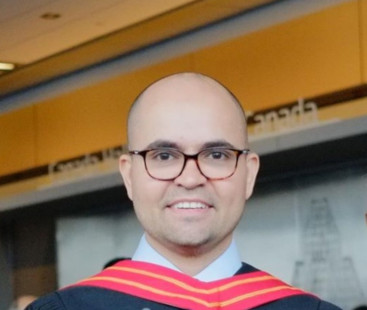
These methods will enable robots to handle a variety of objects that may be out of its field of view. Robots applying these methods will have improved tactile abilities, meaning they will have a better understanding of their surroundings using the sense of touch.
“The results of this research will provide solutions for practical problems in the health and industrial sectors and will help develop close research collaborations between academia and industry,” Dr. de Oliveira said.
Dr. de Oliveira will train six graduate and five undergraduate students with the support of this grant over the next five years. He will explain the findings in leading refereed journals and give presentations at international conferences.
“Bare metal robots lack the means to interact physically with objects and people in dynamic or unstructured environments,” he said.
“Our goal is to investigate novel interfaces that integrate tactile perception to state-of-the-art computer vision systems so that these robots can feel the features of objects they touch, for example the shape, texture, temperature, and softness.”
Although a computer vision system could extract most of a robot’s environmental features, Dr. de Oliveira said a robot could only extract some features by touching objects.
“For example, the roughness of a surface and the hardness of an object can only be estimated through touch,” de Oliveira said.
NSERC is providing Dr. Farhan Ghaffar, Assistant Professor, Electrical Engineering at Lakehead-Georgian, with $152,500 to develop smart radio frequency components that companies can use in a variety of applications such as autonomous vehicles, the Internet of Things (IOT), cell phones, and more.
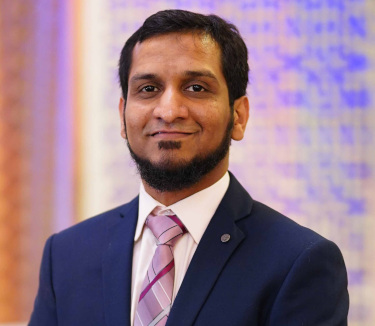
“The fundamental idea of this work is to contribute to the infrastructure development of 5G and IoT communications. Today’s wireless communication is very demanding and highly competitive; therefore, there is a never-ending need of innovation in the design of such components and systems,” Dr. Ghaffar said.
The central goal of this research is to design and develop reconfigurable components that can work at different frequency bands and provide solutions for several applications at a time.
“The heart of this research is a novel technology known as Frequency Programmable Microwave Substrate (FPMS) that (researchers have) not investigated deeply to find viable solutions in various wireless applications,” he said.
This grant will fund the training of up to three Master of Science students, one PhD student and perhaps as many as three undergraduate students.
“Lakehead University is extremely appreciative of the support form NSERC for these projects,” said Dr. Andrew Dean, Lakehead’s Vice-President, Research and Innovation.
“Discovery Grants allow researchers to develop programs of research based on fundamental research. Lakehead University continues to make great advances in the STEM areas and the successes here show the diversity and evolution of the research contributions to this field.”
In 2019/20, Lakehead University will receive nearly $2 million in assistance from the Research Support Fund to support the indirect costs of research, which includes costs for supporting the management of intellectual property, research and administration, ethics and regulatory compliance, research resources, and research facilities.
New NSERC Grants, 2019-2020
Total NSERC funding: $2,390,360
Collaborative Research & Development Grants: One to three-year grants
Dr. Amir Azimi, Department of Civil Engineering, Application of thermal mixing on sewer pipe inspection in high flows, $20,000 (City of Thunder Bay is also contributing $10,000).
Dr. Peter Hollings, Department of Geology, Petrology and geochemistry of intrusive rocks at the Lac des Iles palladium mine, NW Ontario; $88,700 (Impala Canada is also contributing $50,000).
Dr. Baoqiang Liao, Department of Chemical Engineering, Strategies to improve membrane performance of drinking water productions in cold regions, $150,000 (City of Thunder Bay is also contributing $75,000).
Dr. Abdulsalam Yassine, Department of Software Engineering, A Data Analytics System for Adaptive Demand Response in Smart Grids, $60,000 (Synergy North is also contributing $30,000).
Discovery Grants: Five-year grants
Dr. Zubair Md Fadlullah, Department of Computer Science and Thunder Bay Regional Health Research Institute, Optimizing beyond fifth generation (B5G) networks, $205,000.
Dr. Kurt Smith, School of Kinesiology, Sex, function and structure: machine learning the human cerebral vasculature, $132,500.
Dr. Yimin Yang, Department of Computer Science, Deep neural networks with non-iterative learning strategies for pattern recognition and data augmentation applicable to computer vision and healthcare, $152,500.
Dr. Thiago Eustaquio Alves de Oliveira, Department of Computer Science, Enhancing robotic agents through tactile perception and multi-modal interfaces, $132,500.
Dr. Farhan A. Ghaffar, Department of Computer Science (Barrie Campus), Reconfigurable microwave devices for modern wireless applications, $152,500.
Dr. Maryam Ebrahimi, Department of Chemistry, Rational design, synthesis and characterization of surface confined low-dimensional nanomaterials, $132,500.
Dr. Apparao Dekka, Department of Electrical Engineering, Advanced high-power converters and controls for medium voltage drives, $177,500.
Dr. Stephen Kinrade, Department of Chemistry, Aqueous chemistry and biochemistry of silicon, $145,000.
Dr. Abdelhamid Tayebi, Department of Electrical Engineering, Advanced autonomous navigation systems for UAVs, $275,000.
Dr. Salama, Ikki, Department of Electrical Engineering, Combined massive MIMO and interference alignment for future wireless networks involving machine type communications, $165,000.
Dr. Alla Reznik, Department of Physics, and Thunder Bay Regional Health Research Institute, Lead Oxide (PbO) x-ray-to charge transducer for direct conversion medical imaging detectors, $205,000.
Discovery Development Grants: Two-year grants
Dr. Azim Mallik, Department of Biology, Functional ecology of alternate states of black spruce-Kalmia communities: species traits, niche differentiation and plant-soil feedback, $30,000.
Dr. Ingeborg Zehbe, Department of Biology, Large data to revisit the relevance of human papillomavirus type 16 sub-lineages, $30,000.
Dr. Jinan Fiaidhi, Department of Computer Science, Insight Driven Learning based on Thick Data Analytics, $30,000.
Dr. Nasir Uddin, Department of Electrical Engineering, Control technologies to enhance the robustness, energy-efficiency and sustainability of wind energy conversion systems, $30,000.
Dr. Qinglai Dang, Faculty of Natural Resources Management, Permafrost, soil moisture, nutrition, photoperiod and the future of boreal forests: an ecophysiological approach, $30,000.
Engage Grants: One-year grants
Dr. Ehsan Behzadfar, Department of Chemical Engineering, Relationships between physiochemical properties and quality of films made of recycled polyethylene, (in partnership with EcoPoly Solutions Inc) $25,000.
Dr. Salimur Choudhury, Department of Computer Science, Deep learning
algorithms to improve the management of species at risk, (in partnership with the National Council for Air and Stream Improvement, Inc), $24,960.
Dr. Alla Reznik, Department of Physics, and Thunder Bay Regional Health Research Institute, Direct conversion medical imaging detector with Lead Oxide(PbO) x-ray-to charge transducer, (in partnership with Teledyne DALSA), $25,000.
Dr. Leila Pakzad, Department of Chemical Engineering, Investigation to optimize nitrogen purge for the sodium chlorate electrolysis process through numerical modeling, (in partnership with ERCO Worldwide), $25,000.
PromoScience Grant: One-year grant
Dr. Thamara Laredo, Sustainability Sciences (Orillia), I Learn You Learn – STEM Outreach for youth and teachers, $ 6,700.
– 30 –
Media: For more information or interviews, please contact Brandon Walker, Lakehead’s Media, Communications and Marketing Associate, at (807) 343-8177 or mediarelations@lakeheadu.ca. To speak with Jean Bartkowiak at the Health Research Institute about Dr. Reznik’s research please contact Marcello Bernardo, Communications Officer, Thunder Bay Regional Health Sciences Centre, at (807) 684-6765 or bernarma@tbh.net.
Lakehead University is a fully comprehensive university with approximately 9,700 full-time equivalent students and over 2,000 faculty and staff at two campuses in Orillia and Thunder Bay, Ontario. Lakehead has 10 faculties, including Business Administration, Education, Engineering, Graduate Studies, Health & Behavioural Sciences, Law, Natural Resources Management, the Northern Ontario School of Medicine, Science & Environmental Studies, and Social Sciences & Humanities. In 2019, Maclean’s 2020 University Rankings, once again, included Lakehead University among Canada’s Top 10 primarily undergraduate universities, while Research Infosource named Lakehead 'Research University of the Year' in its category for the fifth consecutive year. Visit www.lakeheadu.ca.
Healthy Together
Thunder Bay Regional Health Research Institute is the research arm of Thunder Bay Regional Health Sciences Centre, a 375-bed acute care facility, is a national leader in Patient and Family Centred Care. As the tertiary care provider in Northwestern Ontario, we provide comprehensive services to a population of over 250,000 residents in a region the size of France. Effectively addressing the health care needs of patients and families has earned us both Innovation Awards and Leading Practice Designations. As an academic health sciences centre, we teach the next generation of health care providers and advance medical research. Patients benefit from interprofessional teams of dedicated health care providers and access to leading-edge medical equipment and clinical trials.





